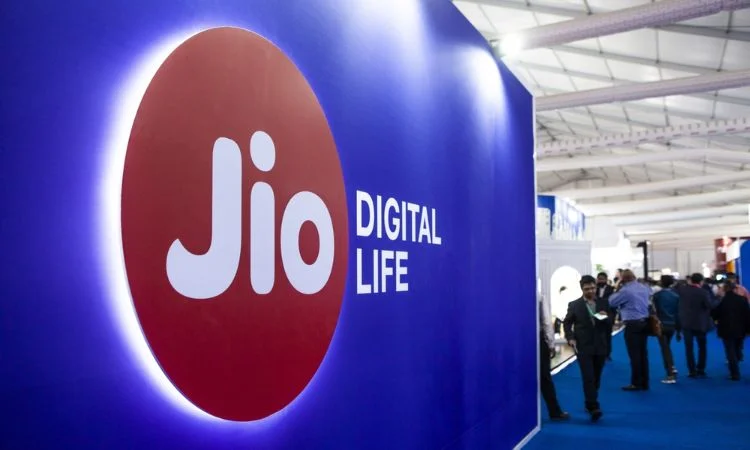The introduction of Reliance Jio into the Indian telecommunications industry has precipitated a notable transformation in the consumption patterns of mobile internet data within the country.
Launched in September 2016 as a subsidiary of Reliance Industries, Jio aimed to provide accessible and high-speed mobile internet services to a broad audience.
In a remarkably brief period, Jio has emerged as a pivotal force in the telecom sector, challenging and reshaping the conventional business models of established players.
Jio’s success can be attributed to the strategic utilization of its extensive network infrastructure, comprising a high-speed 4G LTE network, fiber-optic cables, and a robust cloud data center.
Additionally, the company has embraced innovative business models that facilitate the provision of data services at a significantly reduced cost compared to its counterparts.

An illustrative example of this approach is Jio’s provision of complementary voice calls and messaging services to its clientele, prompting competing entities to reevaluate and adjust their pricing strategies in response to this market disruption.
Company Highlights
| Company Name | Jio (Joint Implementation Opportunities) |
| Headquarters | Mumbai, India |
| Sector | Telecommunications |
| Founder | Mukesh Ambani |
| Founded | 15th February 2007 |
| Revenue | Rs 1,000,000 crore (FY24, Q1) |
| Net Profit | Rs 69,621 crore (FY24, Q1) |
| Average Revenue per User (ARPU) | INR181.7.4 (Q4 |
| Reliance Jio Slogan | ‘Digital Life’ |
| Reliance Jio Tagline | ‘Jio jee bharke’ (Live life to the fullest) |
| Parent Organization | Reliance Industries |
| Website | jio.com |
Revolutionizing Connectivity: The Jio Phone Next Unveiled
The JioPhone Next, a collaborative effort between Reliance Industries, led by Mukesh Ambani, and technology giant Google, initially slated for release on Ganesh Chaturthi, September 10, 2021, encountered a delay due to the global semiconductor shortage.

Postponed until at least Diwali, the reports on September 10, 2021, indicated that Reliance Telecommunication had commenced testing the device among a select user group to identify potential refinements.
The much-anticipated JioPhone Next was officially launched on November 4, 2021, priced at Rs 6,499.
Running on the Android-powered Pragati OS and equipped with a Qualcomm Snapdragon QM215 processor, the phone offers an attractive option for users, with an alternative payment method available.
For those who cannot afford the upfront cost, the JioPhone Next can be acquired for an initial payment of Rs 1,999, with the remaining amount to be settled through monthly installments.
Positioned as a viable choice for individuals seeking an entry-level budget phone, especially those with budget constraints in the range of Rs 6,000-7,000, the JioPhone Next is not without its drawbacks.
The device exhibits sluggish performance due to inadequate RAM, necessitating the use of a Jio SIM as the primary SIM card. Moreover, non-compliance with payment obligations may result in the phone being deactivated by the financier.
While featuring an Android OS, the JioPhone Next incorporates proprietary Jio customizations.
“Jio’s Genesis: Unveiling the Vision Behind a Connectivity Revolution”
In a recent interview, Mukesh Ambani, the visionary founder of Jio, shed light on the origins of this groundbreaking telecommunications venture.
The genesis of Jio traces back to a pivotal moment influenced by the candid observations of his daughter, Isha Ambani.
Check: Richest Sports league in India
In 2011, during a break from her studies at Yale University in the United States, Isha Ambani expressed her frustration with the subpar internet connectivity at their family home. The catalyst for this revelation was her inability to submit coursework due to the unreliable internet infrastructure.
Mukesh Ambani, upon recognizing the personal impact of inadequate connectivity, was prompted to contemplate the broader implications for the entire nation.
This revelation served as the seed for what would eventually become Jio—a visionary initiative aimed at addressing India’s pervasive challenges with poor internet connectivity.
The inception of Jio was not merely a response to a personal inconvenience; it was a recognition of a national need.
Mukesh Ambani’s entrepreneurial spirit and commitment to transformative change crystallized through the realization that India deserved a robust and accessible internet infrastructure.
This revelation set the stage for Jio’s mission to revolutionize connectivity and empower millions of people across the country.
Jio’s journey is a testament to the transformative power of visionary thinking and the profound impact that personal experiences can have on shaping groundbreaking initiatives. As we delve into the startup story of Jio, we uncover a narrative rooted in the convergence of personal insight, technological innovation, and a commitment to catalyzing positive change on a national scale.
Reliance Jio’s Business Model: Strategic Initiatives and Market Impact

Reliance Jio, under the visionary leadership of founder Mukesh Ambani, implemented a series of strategic initiatives that reshaped the telecommunications landscape in India.
This analysis will delve into the business model employed by Jio, particularly during its initial years, and how these strategies not only disrupted the market but also prompted significant shifts in consumer behavior and industry dynamics.
Strategic Initiatives:
During its initial year, Reliance Jio revolutionized the telecom industry by offering unlimited data services and high-quality Voice over LTE (VoLTE) calling at remarkably affordable rates. This bold move set a new benchmark, prompting other telecom operators to reevaluate and adapt their business models in response to Jio’s competitive edge.
Market Impact:
The introduction of Jio’s unprecedented offers had profound and unexpected effects on consumer behavior.
The competitive pricing and enhanced services led consumers to reevaluate their preferences, resulting in a surge in demand for Jio’s offerings.
This shift not only altered the competitive landscape but also triggered a wave of mergers and acquisitions among Indian mobile network providers as they sought to stay competitive in the evolving market.
Consumer Behavior Changes:
Jio’s disruptive business model compelled consumers to embrace a wider array of services, a trend driven by the affordability and accessibility of Jio’s offerings. This increased usage, in turn, contributed to higher consumer spending, reflecting a fundamental change in how telecommunications services were consumed and valued by the public.
Also, Read : Magicpin growth’s success
Jio’s Telecommunications Dominance: Pioneering Transformative Change
Jio’s significant presence in the telecommunications sector underscores its position as a pioneering force in the industry, serving as a catalyst for transformative change and emerging as a trailblazer in Indian 4G VoLTE services under the leadership of Mukesh Ambani.
Currently holding the mantle as the foremost telecommunication service provider in India, Jio is not only a dominant force but is also steering advancements towards the introduction of 5G and 6G services for Indian users.
As the third-largest mobile network operator globally, Jio commands a substantial user base, boasting over 179.93 million users. In April 2022 alone, the company witnessed an impressive addition of 1.6 million wireless subscribers to its network, further solidifying its growth trajectory.
Jio’s stronghold extends to the broadband segment, where it leads with a commanding 52.15% share of the total Indian user base. In this segment, Bharti Airtel follows, holding a 31.61% market share.
Reflecting this success, Reliance Industries’ shares concluded trading 1.5% higher at Rs 2,529 on the Bombay Stock Exchange as of June 28, 2022.
The company’s strategic moves and continued expansion underscore its commitment to providing cutting-edge telecommunications services and shaping the future of connectivity in India.
Company Invested in Jio
| Name of the Company | Stakes | Total Investments |
| 9.99% | INR 43,574 cr | |
| Vista Equity Partner | 2.32% | INR 11,367 cr |
| Silver Lake Partner | 1.15% | INR 5,655.75 cr |
| General Atlantic | 1.34% | INR 6,598.38 cr |
| KKR & Co. Inc. | 2.32% | INR 11,367 cr |
| Mubadala Investment Company | 1.85% | INR 9,093.60 cr |
| Silver Lake Partner | 0.93% | INR 4,546.80 cr |
| Abu Dhabi Investment Authority | 1.16% | INR 5,683.5 cr |
| TPG Capital | 0.93% | INR 4,546.80 cr |
| L Catterton | 0.39% | INR 1,894.50 cr |
| Saudi Arabia’s Wealth Fund PIF | 2.32% | INR 11,367 cr |
| Qualcomm | 0.15% | INR 730 cr |
“Reliance Jio’s Success Blueprint: Customer-Centricity, Webscale Mentality, and Digital Revolution”
The foundation of Jio’s remarkable success lies in its unwavering commitment to customer-centric practices and a robust webscale mentality.’ ‘
Demonstrating a formidable entry into the densely populated and fiercely competitive mobile market, Reliance Jio achieved seemingly effortless success by offering complimentary 4G voice and data services.
In essence, Reliance Jio is dedicated to unlocking the entire scope of the internet’s potential to catalyze a digital revolution through cutting-edge technologies.
By introducing innovative services and implementing meticulous long-term strategies, the company aspires to expedite global connectivity and reshape the perspectives of individuals in India, influencing the way they think, work, live, and experience entertainment.
Conclusion
Reliance Jio has not only disrupted the telecommunications landscape in India but has also redefined the paradigms of connectivity and digital transformation.
Launched in 2016, the company’s unprecedented success can be attributed to its strategic deployment of an extensive network infrastructure, innovative business models, and a commitment to providing affordable and high-quality services.
Jio’s success blueprint revolves around customer-centricity, a webscale mentality, and an unwavering commitment to revolutionizing the digital landscape.
With an eye on the future, Jio’s strategic moves and investments position it as a trailblazer, actively steering the evolution of connectivity towards 5G and 6G services.
As Jio continues to shape the future of telecommunications in India, its impact reaches beyond mere connectivity, influencing and reshaping the very fabric of how individuals in India experience and engage with the digital world.















